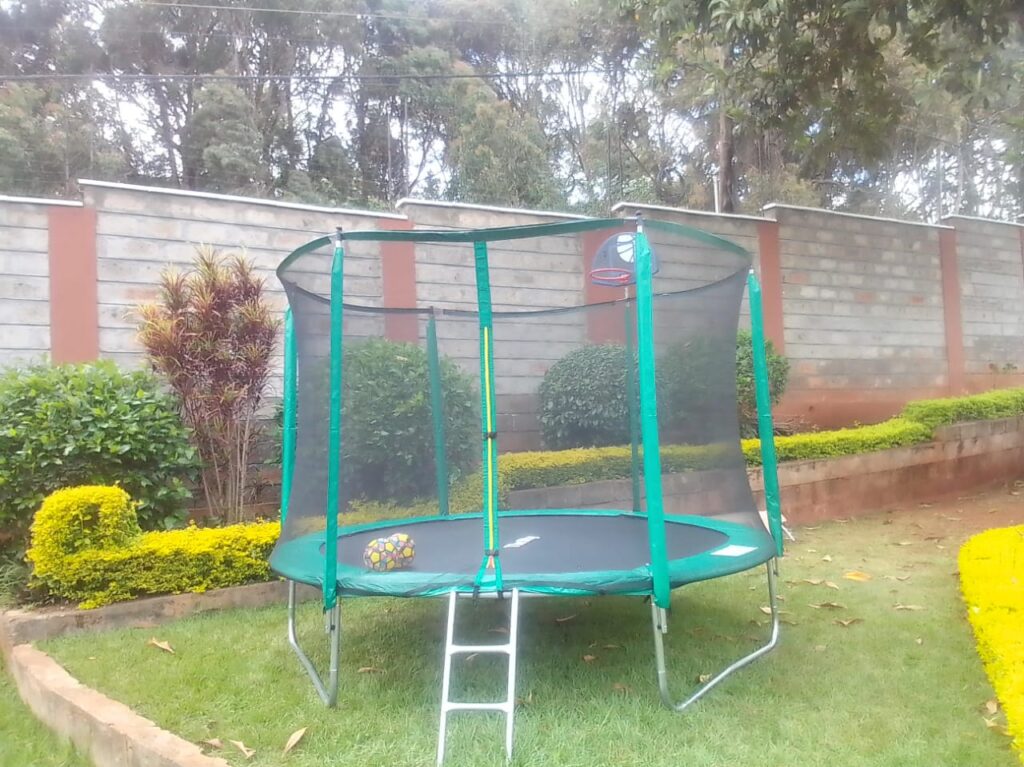Trampolining in Nairobi: How One Nairobi Hustler Built a Trampoline Empire

Trampolining in Nairobi is no longer just a fun backyard activity—it’s becoming a serious business opportunity and a movement reshaping how local communities engage with fitness and play. From crowded estates to empty church grounds, Nairobi’s youth are finding creative ways to turn bouncing into profit, purpose, and even therapy. One inspiring story comes from a local hustler who started with a single trampoline beside a kibanda and grew it into a thriving bounce park brand that’s changing the face of entertainment across the city.



The Humble Beginning: One Trampoline, One Dream
In 2019, Kelvin, a father of two from Kayole, was just another jobless youth navigating Nairobi’s grind. One day, while researching fun ways to engage his kids during the school holidays, he stumbled on trampoline videos online. The spark was instant.
Using his savings (and a small loan from a chama group), he imported his first mini trampoline and set it up beside his mother’s kibanda near Donholm Phase 5. For KSh 50 per 10 minutes, children lined up to bounce, laugh, and burn off energy. Word spread fast.
“It looked like a joke at first,” Kelvin says, “but I saw parents returning. That meant value.”
Scaling the Vision: From Estates to Bounce Parks
Kelvin reinvested every shilling. By early 2021, he had four trampolines rotating between estates like Komarock, Umoja, and Tassia. Parents loved the mobile model—safe play, right at their doorstep.
Soon, with knowledge of the offerings from Frugal Innovations Kenya, a trampoline supplier in Nairobi, Kelvin secured his first small space in Roysambu and launched Bounce254 Park, an open-air trampoline area with safety nets, music, and trained supervisors.
Today, he operates three fully established trampoline parks in Roysambu, Kitengela, and Kahawa West, with plans for new locations in Syokimau and Thika Road Mall (TRM).
Why Trampolines Work in Nairobi
1. Affordable Entertainment
Most entertainment options in Nairobi are priced out of reach for many families. Kelvin’s trampoline parks charge as little as KSh 150 per session, making them ideal for families in mid- to low-income areas.
2. Space-Smart Setup
With limited real estate, Kelvin’s parks are modular and built on repurposed lots—school yards on weekends, church grounds, and event spaces during holidays.
3. Health and Social Benefits
With Nairobi’s growing concerns over childhood obesity and mental health, trampoline exercises offer cardio, stress relief, and social interaction. Parents now see them not just as fun—but functional.
Challenges Along the Way
Kelvin faced resistance from landlords, licensing hurdles from Nairobi County, and equipment wear and tear. But community support kept him going.
“Even when City Council tried to chase me, parents petitioned for me to stay,” he recalls.
An Empire in the Making
Kelvin now employs over 15 young people across his parks, trains estate-based trampoline attendants, and offers weekend franchise kits to youth groups looking to earn income.
He also donates sessions to orphanages and runs holiday boot camps promoting fitness and discipline through structured bouncing games.
Lessons from Kelvin’s Journey
Start small, think big: Kelvin began with one trampoline and a vision.
Understand your community: His model thrives because it serves working-class Nairobians.
Reinvest and network: He partnered with suppliers and leaned on chama groups to grow.
Trampoline in Nairobi as a Business Opportunity
Kelvin Otieno’s journey proves that even the simplest idea—like a trampolining in Nairobi—can become a life-changing business with the right mindset. His story continues to inspire Nairobi youth looking to rise above economic challenges, one bounce at a time.
If you’ve got space, vision, and hustle, a trampoline business might just be your next big leap.
- Top 5 Affordable Home Fitness Trends in Kenya and How They Compare To Trampoline Fitness
- Trampoline Repair, Maintenance, and Replacement Parts in Nairobi, Kenya
- Where to Find Genuine Trampoline Spare Parts in Nairobi
- Trampoline Repairs in Nairobi, Kenya: FAQs, Costs, and Maintenance Tips
- Trampoline Repair Near Me in Kenya: Is Your Trampoline Worth Repairing or Replacing?


